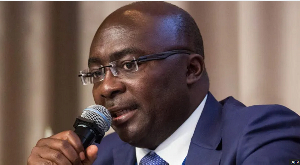An anger-stoking and peace-stultifying news item published on October 26, 2009, by The Associated Press has revealed, once again, the simmering tensions surrounding racial profiling and ethnic segmentation in the United States of America. Larry Whitten, a 63-year-old Virginia-born conglomerateur known to turn around failing hotels, recently created a national controversy when he purchased a previously failing hotel in the small town of Taos, New Mexico, and then asked his predominantly Hispanic staff to make some radical and unthinkable changes! According to the news report, Larry Whitten “forbade the Hispanic workers ... from speaking Spanish in his presence (he thought they’d be talking about him), and ordered some to Anglicize their names” (The Associated Press). Whew! Just when we thought that slavery and overt racial oppression were over, here comes this bombshell!
“No more Martin (Mahr-TEEN). It was [now] plain old Martin. No more Marcos. Now it will be Mark,” were some of Larry Whitten’s new rules, according to The Associated Press. The tough-talking Larry Whitten would insist that, in his 40 years as a hotel executive, it was his radical style of management that made it possible for him to turn around each of those failing businesses and hotels. He posited that, since he expected many out-of-town customers to lodge in his hotel and some may have a difficult time identifying with some of these non-English names, it was necessary to replace the front desk staff, if they refused to Anglicize their difficult-to-pronounce Hispanic names. Of course, Whitten’s view about this issue is very subjective, as there are very few dissimilarities between Hispanic and English names, as far as pronunciation is concerned.
As expected, the predominantly Hispanic population in this town of 5,000 became incensed, with some residents reminding Whitten that the town had been occupied for 1,000 years by the American Indian enclave of Taos Pueblo and it also had Spanish speakers long before English speakers settled there. Although the uproar would eventually force Larry Whitten to tone down his rhetoric and apologize for his insensitive remarks, these would come only after he had fired several Hispanic employees, proffering that “they were hostile and insubordinate,” although at least one person, Martin Gutierrez, was fired for refusing to “use the unaccented Martin as his name” (The Associated Press).
A Ghanaian – with a typical Ghanaian name – living in the Western world will tell you that it is not easy dealing with natives who either deliberately mispronounce his name or intentionally refuse to learn to pronounce his name correctly. Naivety receives no encomiums from anyone, but to intentionally insult and demean another’s heritage is simply wrong, and foreigners have been on the receiving end of these vile treatments in the West for centuries! Do your coworkers, with whom you have worked at least a year, not continually mispronounce your last names, just because they still sound too “foreign” to them? Is it so hard to learn to pronounce a simple name such as Anoma, Anim, Jorge or Gustavo?
And the preceding statements would bring me to my thematic question: Will you, as a Ghanaian, be willing to change your name just to obtain or keep a job in the West? How would you react if a would-be employer told you that his customers may detest your name, so to get the job, you must be willing to accept whatever name he felt would promote his business? I am sure that Larry Whitten, if he claimed to be having problems with names like Martin (Spanish version) and Gustavo, will certainly be riled by names like Kojo Osaman, Abena Agyinamoa, Akwasi Kuntukununku, Kwabla Nutsugah, Yawa Dzata, Paa Dompe, Aliyu Akatapore, Nii Gbee and Odartey Abotia! Larry Whitten’s chauvinism and pomposity will certainly be on display, as he would question how in the world we were granted visas to permanently relocate to his country!
On a more serious note, none of us should ever accept these insults – the deliberate mispronunciation and premeditated mangling of our names – and laugh about them, for we may never be treated with respect by these villains, unless we fight back firmly and bravely. And our paroxysms of rage can draw attention to the negative attitudes of bigots who have refused to embrace today's multicultural societies. For in the eyes of some of these dogmatists, the Ghanaian may not be worth much, perhaps no better than what the U.S. Constitution – written in 1787 and ratified in 1788 – once declared about our kind: that we were equivalent to no more than three-fifths of Larry Whitten’s kind!
The writer, Daniel K. Pryce, holds a master’s degree in public administration from George Mason University, U.S.A. He is a member of the national honor society for public affairs and administration in the U.S.A. He can be reached at dpryce@cox.net.
Opinions of Thursday, 29 October 2009
Columnist: Pryce, Daniel K.
Would You Change Your Name to Find or Keep a Job?
Entertainment

















